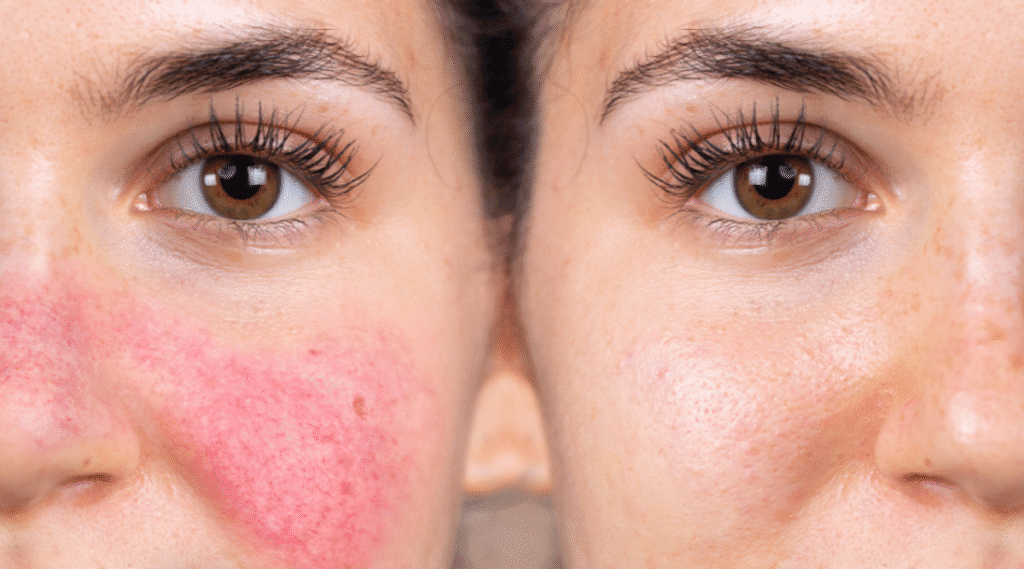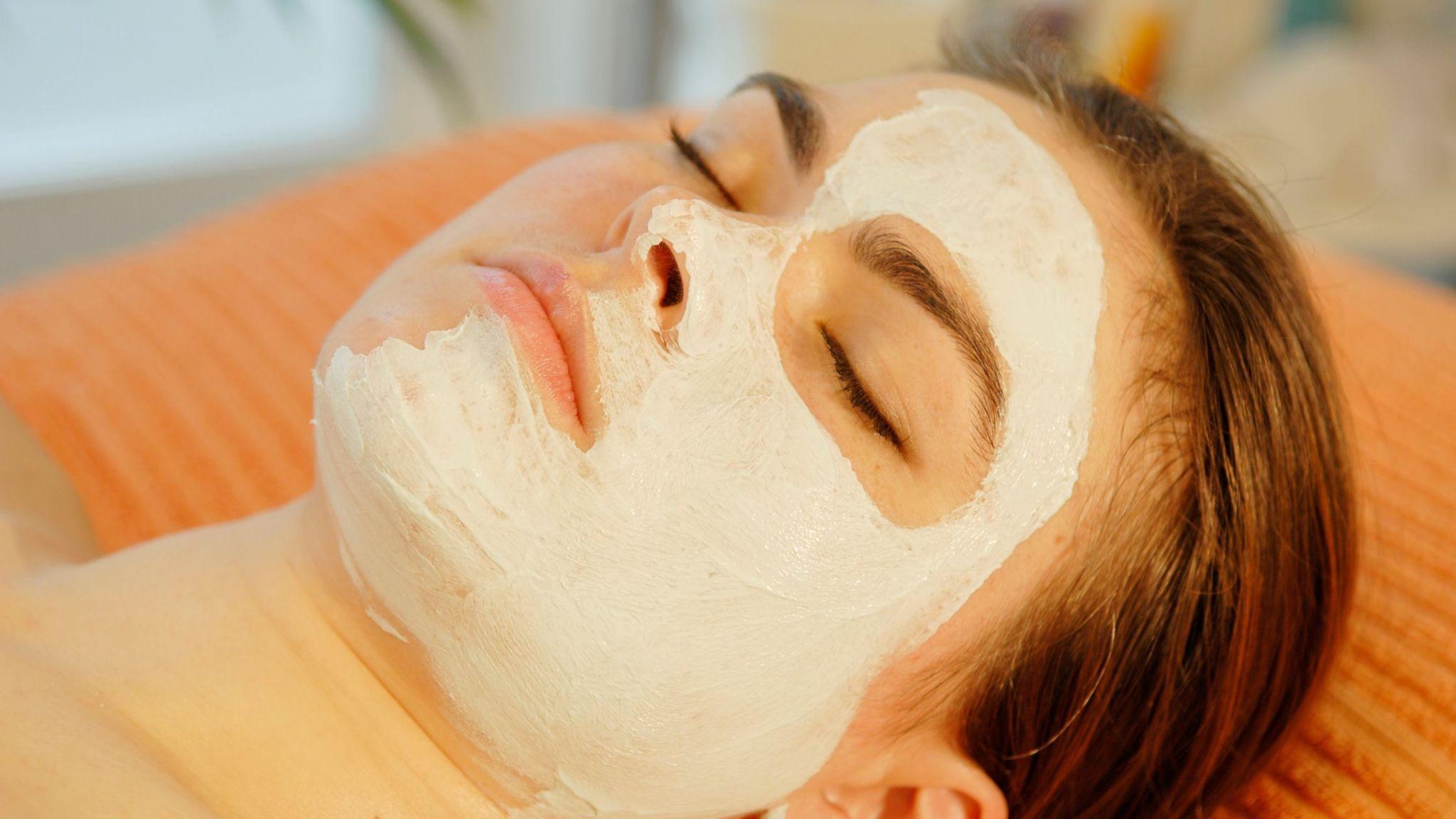What is Rosacea?
Rosacea is a chronic skin condition that causes redness, visible blood vessels, and sometimes pimples, primarily on the face. Its symptoms include flare-ups triggered by various factors like sun exposure, stress, and certain foods. Proper skincare can manage the condition effectively.
How to Care for Your Rosacea
The right skincare routine is essential in managing rosacea, reducing flare-ups, and improving treatment outcomes. Here are some dermatologists’ recommendations:
1. Choose Rosacea-Friendly Skin Care Products
Avoid products with these irritants:
- Alcohol
- Camphor
- Fragrance
- Glycolic acid
- Lactic acid
- Menthol
- Sodium lauryl sulfate
- Urea
Instead, opt for products that are fragrance-free, non-comedogenic, and designed for sensitive skin. Avoid astringents or toners.
2. Go Fragrance-Free
Choose fragrance-free (rather than unscented) products to reduce irritation. Test products before full application to avoid stinging.
3. Cleanse Your Face Gently, Twice a Day

Use a mild, rosacea-friendly cleanser.
- Apply gently with fingertips in a circular motion.
- Rinse with warm water using fingertips.
- Pat dry with a clean cotton towel.
Cleansing helps remove oil and dirt, which can worsen irritation.
4. Moisturize After Cleansing
Whether rosacea causes dry or oily skin, moisturizing is key. After cleansing, apply a rosacea-friendly moisturizer to help lock in moisture and restore skin comfort. Studies show that moisturizing alongside rosacea treatments can improve results.
5. Protect Your Skin from the Sun Year-Round
Sun exposure is a major rosacea trigger. Protect your skin by:
- Seeking shade when possible
- Wearing sun-protective clothing, including hats and sunglasses
- Using sunscreen with SPF 30 or higher, broad-spectrum protection, and water resistance
Look for sunscreens containing zinc oxide, titanium dioxide, or both. For a more comfortable application, opt for micronized or tinted mineral sunscreens to avoid a white cast, especially on darker skin tones.
6. Be Gentle with Your Skin
Avoid anything that can irritate your skin, such as:
- Rubbing, scrubbing, or massaging the skin
- Exfoliating
- Using rough towels or facial sponges
Gently wash and rinse your face with fingertips to prevent flare-ups.
7. Use Makeup If Desired
If you wear makeup, consider using yellow-tinted concealers to mask discoloration or green-tinted ones to camouflage redness. Dermatologists recommend water-based or powder makeup to minimize irritation.
After Treatment
Once you start following these tips, your skin may feel more comfortable, and flare-ups will reduce. If you have trouble finding suitable products, consult your dermatologist for personalized recommendations.
Also Read : The Best Moisturizers for Eczema-Prone Skin Reviewed



